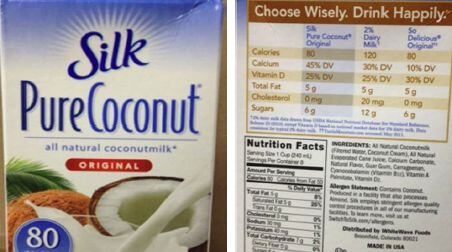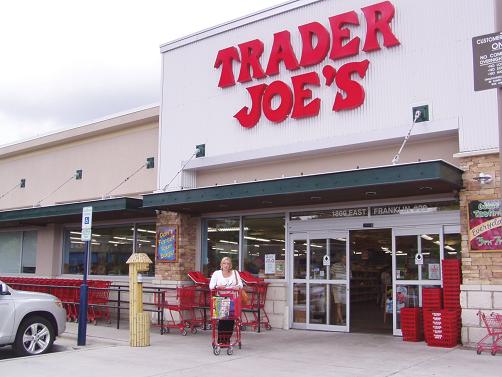Chobani persuaded a judge to ditch a putative class action alleging it misled consumers by calling dried cane syrup ‘evaporated cane juice’ on product labels (although the case has not been dismissed with prejudice), but Blue Diamond Growers, Trader Joe’s and Wallaby Yogurt Company failed to convince federal judges in the same district (Northern California) to ditch their cases.
The news came as a new wave of ECJ-related complaints was filed by law firm Pratt & Associates (which is also representing plaintiffs in the cases above) against the makers of Zola acai drinks, Steaz Iced Teas and others*.
Judge reconsiders putative class action v Chobani, and decides she will grant its motion to dismiss
Looking at some recent ECJ-related Court orders, there was good news for Chobani (which is also facing legal action over the recent moldy yogurt incident).
In her September 19 order on the Kane et al v Chobani case (5:2012cv02425), judge Lucy Koh granted Chobani’s motion to dismiss all of the claims, although she did allow the plaintiffs to file an amended complaint and re-plead some claims.
However, other high-profile defendants facing similar lawsuits were not so lucky.
Blue Diamond not so lucky: Case to proceed
In her October 2 order on an ECJ-related putative class action (Chris Werdebaugh et al. v. Blue Diamond Growers, 5:12-cv-02724), Koh rejected the almond giant’s bid to dismiss the case.
Werdebaugh alleged that Blue Diamond misled consumers by listing ‘evaporated cane juice’ as an ingredient instead of sugar cane or cane syrup in its Almond Breeze almond milks, despite the fact that the FDA had sent out multiple warning letters and produced draft guidance specifically telling firms not to use the term because it is false and misleading and ECJ is not a ‘juice’.

Federal regulations also instruct that ingredients must be described by their common or usual names, and that to call something “juice” it should be “the aqueous liquid expressed or extracted from one or more fruits or vegetables”, he argued.
Judge: The Plaintiff’s claims are not pre-empted by federal law, and applying the doctrine of primary jurisdiction is not warranted
Many of his arguments convinced Koh, who rejected Blue Diamond’s contention that Werdebaugh lacked constitutional and statutory standing and denied Blue Diamond’s motion to strike his claim for monetary damages under the California Consumers Legal Remedies Act.
She also rejected the argument that Werdebaugh’s complaint should be dismissed because the claims are pre-empted by the Federal Food, Drug and Cosmetic Act (FDCA) or covered by the doctrine of primary jurisdiction (and should be left to the FDA to determine).
“The Plaintiff’s claims are not pre-empted by federal law, and applying the doctrine of primary jurisdiction is not warranted in this instance”, said Koh.
Her stance is in sharp contrast to that of judge Yvonne Gonzalez Rogers, who recently dismissed an ECJ lawsuit (Hood vs Wholesoy & Co), on primary jurisdiction grounds (“The Court finds it is appropriate to defer to the authority and expertise of the FDA to say what the appropriate rules should be with respect to evaporated cane juice”).
In fact, said Koh, it is not appropriate to pass this matter to the FDA, given that it has repeatedly “articulated a position on the use of evaporated cane juice that is both internally consistent and consistent with existing regulatory requirements”.
Trader Joes’: Plaintiffs have stated plausible allegations that the use of the term evaporated cane juice violates the Sherman Law

Meanwhile, in two more ECJ-related case (Amy Gitson et al v Trader Joe’s and Frank Morgan et al v Wallaby Yogurt Company), judge William H Orrick also rejected the defendants’ arguments that the complaints should be dismissed because the claims are pre-empted or covered by primary jurisdiction.
Orrick said: “Wallaby cannot credibly argue that the FDA has such expertise that the Court must defer to it under the primary jurisdiction doctrine and then turn around and suggest that the FDA’s views [as expressed in its draft guidance], even if tentative, should not guide the Court in determining whether Wallaby may have violated the law.”
While he dismissed most of the claims in both lawsuits, he said the plaintiffs in the Trader Joe’s case had “stated plausible allegations that the use of the term evaporated cane juice violates the Sherman Law”.
Meanwhile, the plaintiffs in the Wallaby case did “adequately plead that using the term ‘evaporated cane juice’ instead of ‘sugar’ violates the ‘unlawful’ prong of California’s Unfair Competition Law”, he said.
Attorney: It's all over the map
Asked what food marketers are supposed to make of all this, Justin Prochnow, an attorney in the Denver office of law firm Greenberg Traurig, said: "It’s kind of all over the map, similar to the litigation surrounding 'all natural'. Some judges find preemption, some judges don’t. I am unaware of any judges that have actually gotten to the merits of the claim."
But he added: "I do think it is important to understand that while plaintiff lawyers like to point to the FDA’s Draft Guidance as evidence that use of the term “evaporated cane juice” is false and misleading, it is not evidence. Additionally, while the FDA has sent warning letters that have also taken issue with the use of evaporated cane juice, FDA warning letters are not FDA action or evidence of wrong doing."
What is evaporated cane juice?

Evaporated cane juice - which is made by extracting the juice from sugar cane and then evaporating or removing the water and first became available commercially in the 1990s - has a “lower impact on taste profiles and food coloration” than “common refined sugar”, according to WhiteWave Foods.
“Its widespread use is, unsurprisingly, most prevalent in healthy foods at the industry’s vanguard, stirring no controversy until this recent tsunami of lawsuits was filed.”
Click here to read the FDA's 2009 draft guidance on the use of the term evaporated cane juice.
